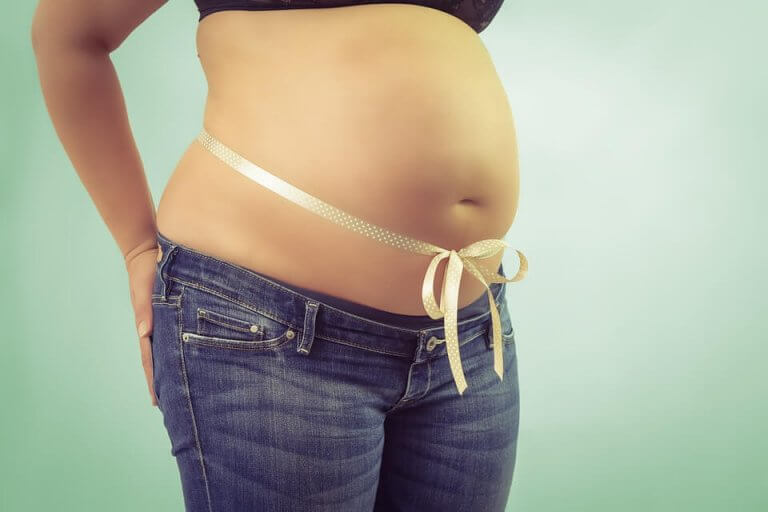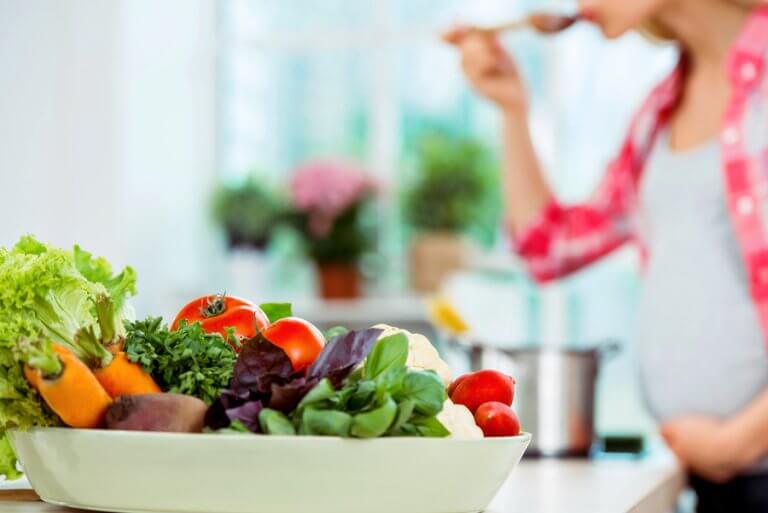The Health Risks of Being Underweight During Pregnancy

When a woman is pregnant, she should clearly eat enough to keep herself healthy. But how does being underweight during pregnancy affect her health?
There are multiple basic necessities required for a fetus to develop appropriately and for a mother to handle her body’s changes.
Many women sacrifice health for beauty, or simply aren’t able to provide the right nutrients for their bodies. This situation leads us to think about the health risks of being underweight during pregnancy.
It’s often thought that pregnant women have voracious appetites and cravings that naturally guide them to eat regularly, reaching a healthy weight and optimal health. However, if this isn’t the case, what happens to the mother and the baby?
How Being Underweight During Pregnancy Affects Health
Being underweight during pregnancy affects the mother and fetus in multiple ways. Women who lose weight during pregnancy or who become malnourished are classified as having high-risk pregnancies of type I or type II.
Type I High-Risk Pregnancies
A pregnancy is considered a Type I high-risk pregnancy if the mother is in good health but is exposed to factors such as poor nutrition, extreme poverty, tobacco use, or alcoholism.
Type II High-Risk Pregnancies
Type II High-Risk pregnancies occur when the future mother suffers from an illness such as diabetes, preeclampsia, or HIV. It also includes pregnancies in which the fetus is under the weight recommended by pediatricians.

These classifications signal that both mother and baby, if malnourished, may run the risk of developing an illness. But specifically, how does losing weight affect the mother and baby?
Specific Consequences of Being Underweight During Pregnancy
The most direct consequences linked to being underweight during pregnancy are:
- Risk of miscarriage.
- Possibility of premature delivery.
- Risk that the baby is underweight.
- Death of the infant a few weeks after birth.
- Growth or intellectual capacity disorders.
“When a woman is pregnant, she should eat enough to keep herself healthy.”
How Skinny Is Too Skinny?
A woman’s body type varies depending on her height and genetics. A woman is considered underweight if her Body Mass Index is under 19, or if there are signs of extreme thinness.
But how can you tell if a pregnant woman is also malnourished? It’s important to understand that although a woman may eat a lot, this doesn’t mean she’s eating well.
It’s possible that what she’s eating doesn’t have the correct vitamins and nutrients that the body needs. The body needs these nutrients to function well and to be able to form a new life.
To identify whether a woman is malnourished, look for these physical symptoms. The most common are:
- Weak muscles and lack of strength.
- Constant feeling of weakness.
- Dry skin in various areas of the body, including the lips.
- Hair loss.
- Cavities.
- Difficulty concentrating.
- Heart problems.

Nutritional Recommendations
If you’re pregnant, it’s important that you change how you eat to prioritize organic food over so-called fast food. Make sure you eat enough vegetables, fruits, and lean meats.
Increase the calories you eat. During the first trimester, eat about 150 more calories a day. In the second and third it should be closer to 350 extra calories a day.
If you have particular health problems such as diabetes, Celiac disease, allergies, or food intolerances, remember that your doctor can recommend a diet that fits your needs.
There’s no need to pay for a specialist if it isn’t in your budget. You can use public health services. Find out about the free resources in your country.
Finally, the many recipes for pregnant women that are available can be a great help. With a little research you’re sure to find something that fits your needs for all your daily meals.
All cited sources were thoroughly reviewed by our team to ensure their quality, reliability, currency, and validity. The bibliography of this article was considered reliable and of academic or scientific accuracy.
- Zhao R., Xu L., Wu ML., Huang SH., Cao XJ., Maternal pre pregnancy body mass index, gestational weight gain influence birth weight. Women Birth, 2018. 31 (1): 20-25.
- Zhu Y., Hedderson MM., Sridhar S., Xu F., et al., Poor diet quality in pregnancy is associated with increased risk of excess fetal growth: a prospective multiracial/ethnic cohort study. Int J Epidemiol, 2019. 48 (2): 423-432.
This text is provided for informational purposes only and does not replace consultation with a professional. If in doubt, consult your specialist.
